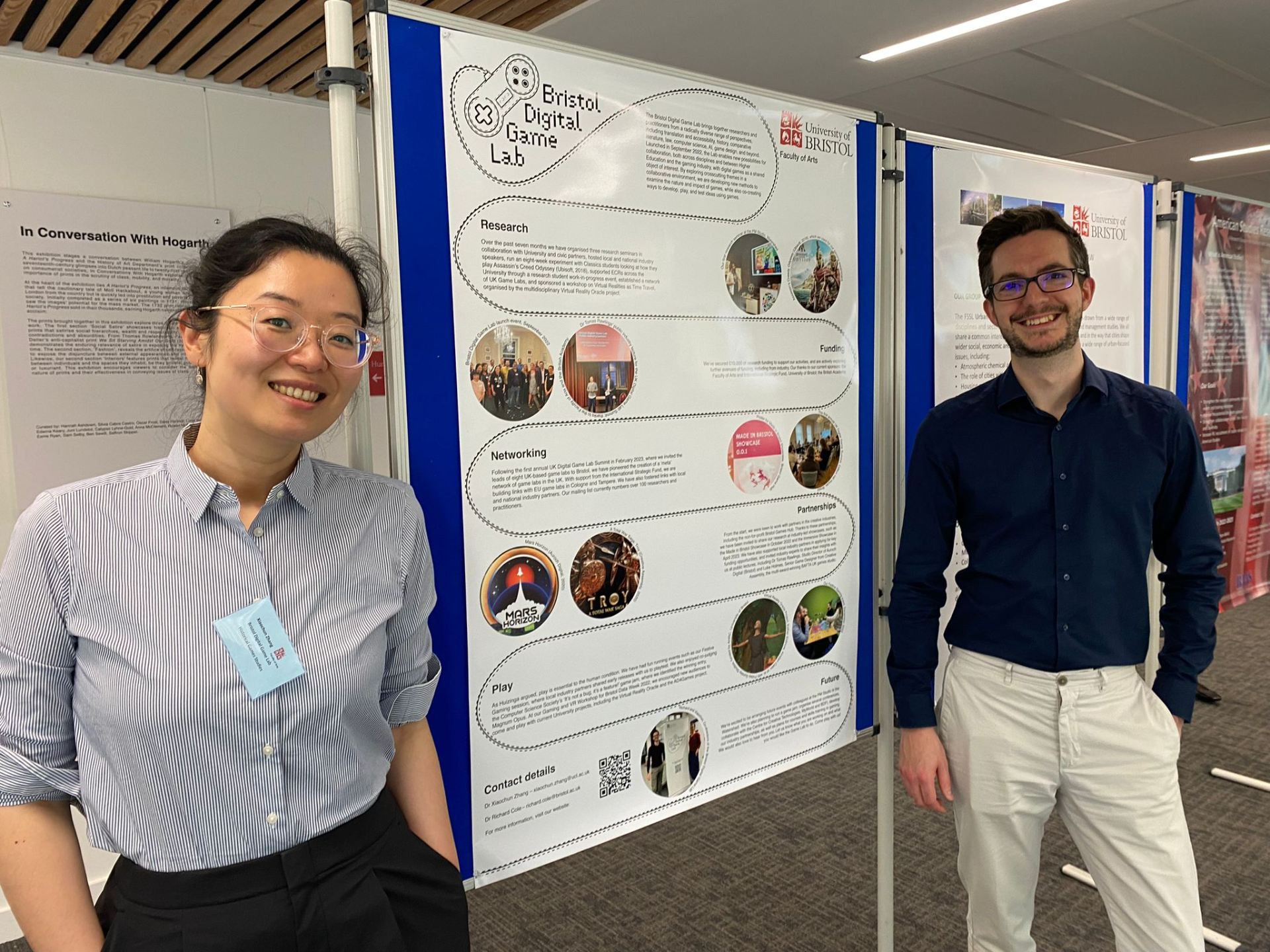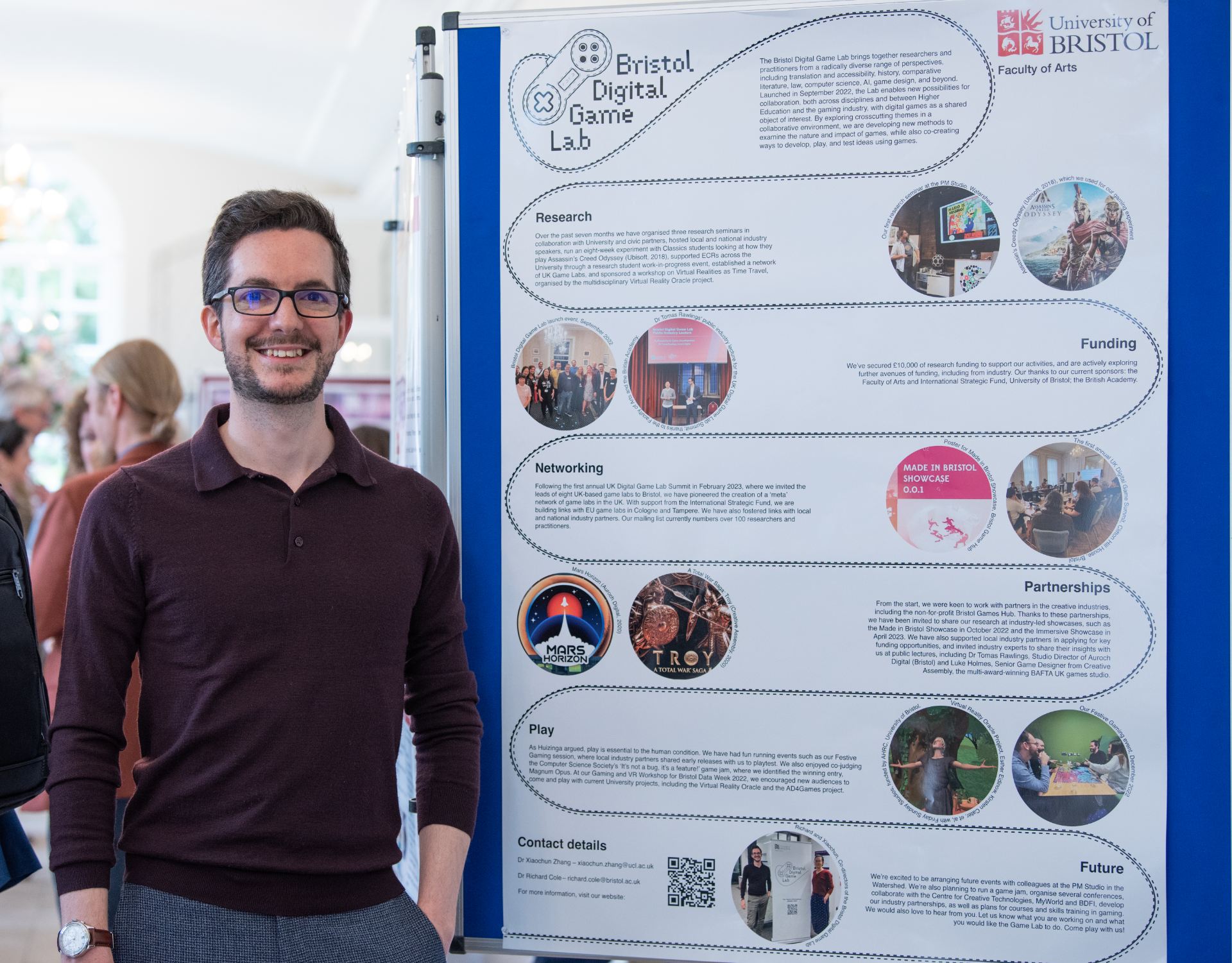The academic study of the representation of history in video games is currently thriving: more and more researchers are investigating what this popular medium has to offer in terms of thinking about the role of history today, and the amount of books, articles, conferences, and workshops organized around the topic has likewise grown exponentially. Still, one area that has not really received sustained attention is the question of how players actually play historical games, referring to both the impact such games may have on players, and specific (un)conscious decisions they make during gameplay.
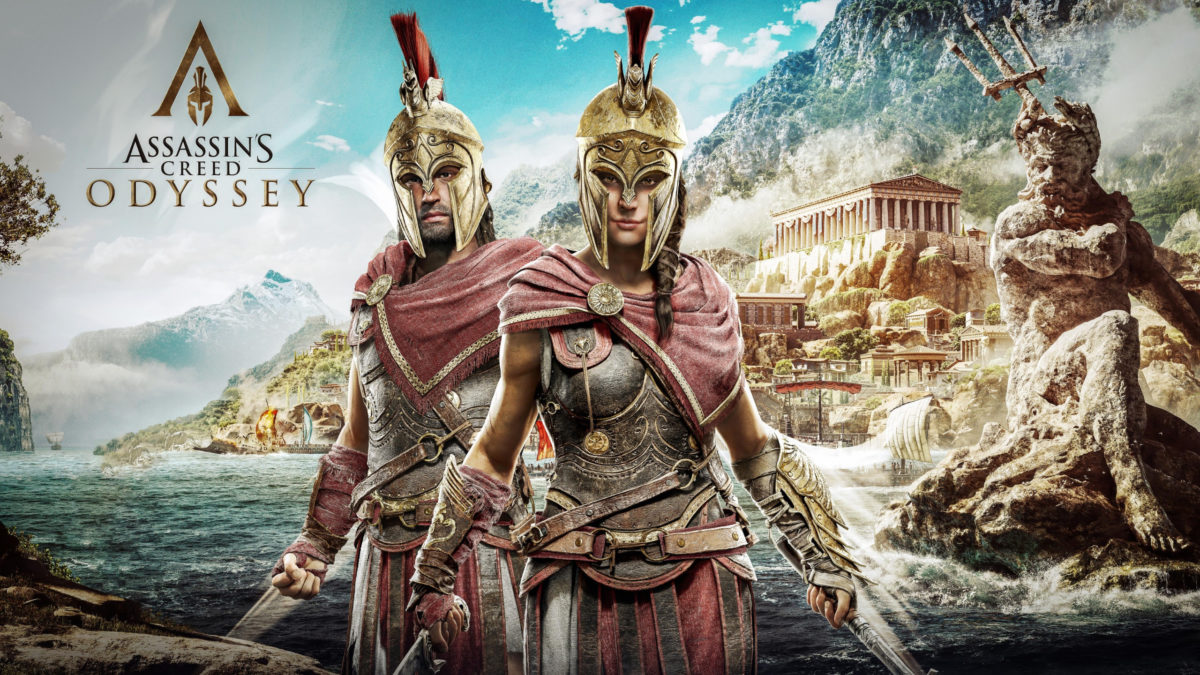
To investigate this in more depth, Richard Cole, co-Director of the Bristol Digital Game Lab teamed up with Alexander Vandewalle from the University of Antwerp and Ghent University (Belgium). Together, they coordinated an experiment where Classics students were asked to play the game Assassin’s Creed Odyssey for eight weeks and subsequently report and reflect on their experiences. Assassin’s Creed Odyssey (Ubisoft, 2018) is a critically and commercially successful historical video game in which players adopt the persona of a mercenary during the first nine years of the Peloponnesian War (431-422 BCE) between Athens and Sparta. In the game, players travel to well-known ancient sites, ranging from the Parthenon in Athens, the oracle at Delphi, to the Minoan palace at Knossos, as well as to more obscure locations such as the Acrocorinth and the Delian Lion Terrace. Players also participate in historical events, including the staging of Aristophanes’ Knights (424) and the Battle of Amphipolis (422). The game was lauded for the lavish detail with which it reconstructed ancient Greece.
Specifically, the experiment inquired into how Classics students played their game characters, why they made the decisions that they made, and to what extent they were motivated to play in a certain way because of historical considerations. In total, the experiment was conducted with ten students, six of whom attended Ghent University, and four who studied at the University of Bristol. The Bristol Digital Game Lab provided infrastructure for this experiment, offering valuable support ranging from the recruitment of student participants, to platforming further discussion during the analysis itself. The investigators behind the experiment would like to extend their sincere thanks to the Lab!
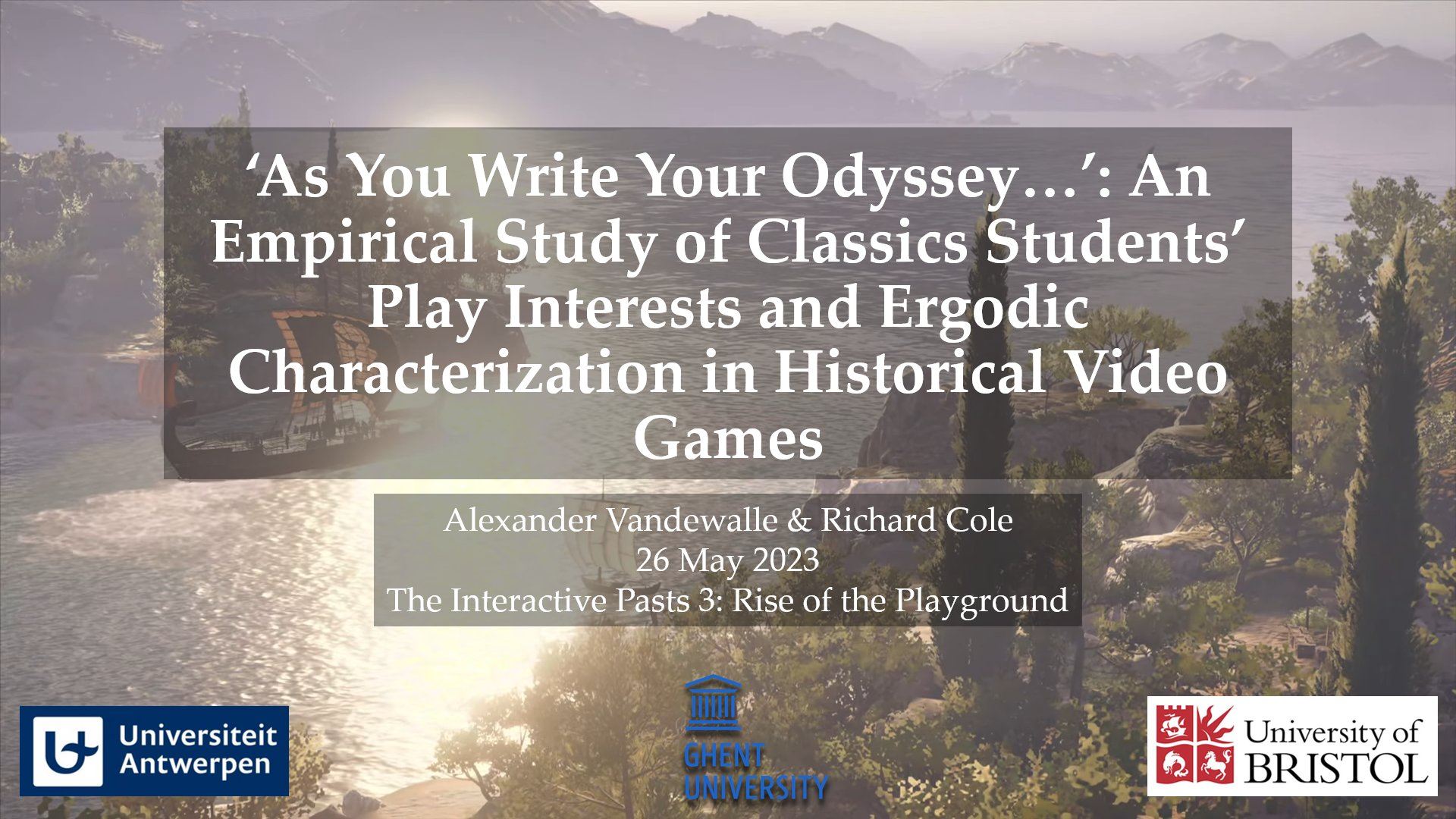
On May 26, Richard and Alex presented their work at the third Interactive Pasts conference (TIPC3) hosted by the VALUE Foundation in Leiden, a leading Dutch research group that has been conducting research into historical games since 2017. Their presentation, entitled ‘As You Write Your Odyssey…’: An Empirical Study of Classics Students’ Play Interests and Ergodic Characterization in Historical Video Games, discussed the experiment’s main findings and elicited further conversation on the meaning of immersion in such games, the methods used to study player experiences, as well as future avenues for game designers to enhance players’ engagement with games. You can watch the recording of the presentation on YouTube. Richard and Alex plan to write up the experiment analysis and publish the results, thus opening up the debate about the nature of players’ experiences of historical games.
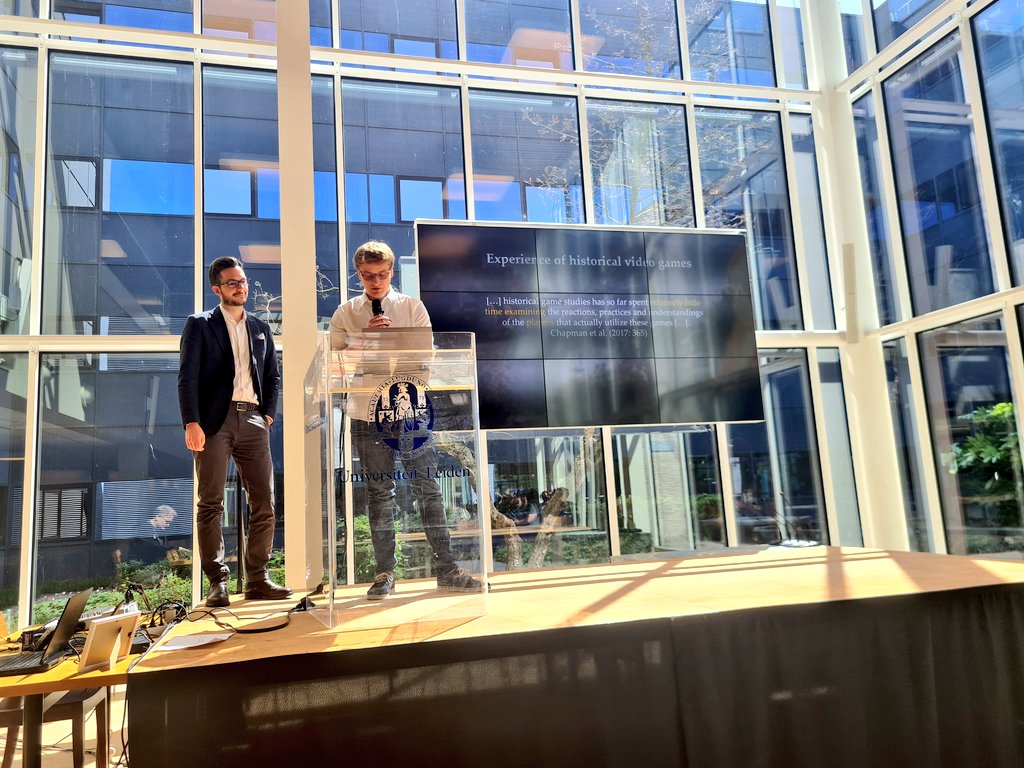
Our thanks to Alexander Vandewalle for writing this blog post.


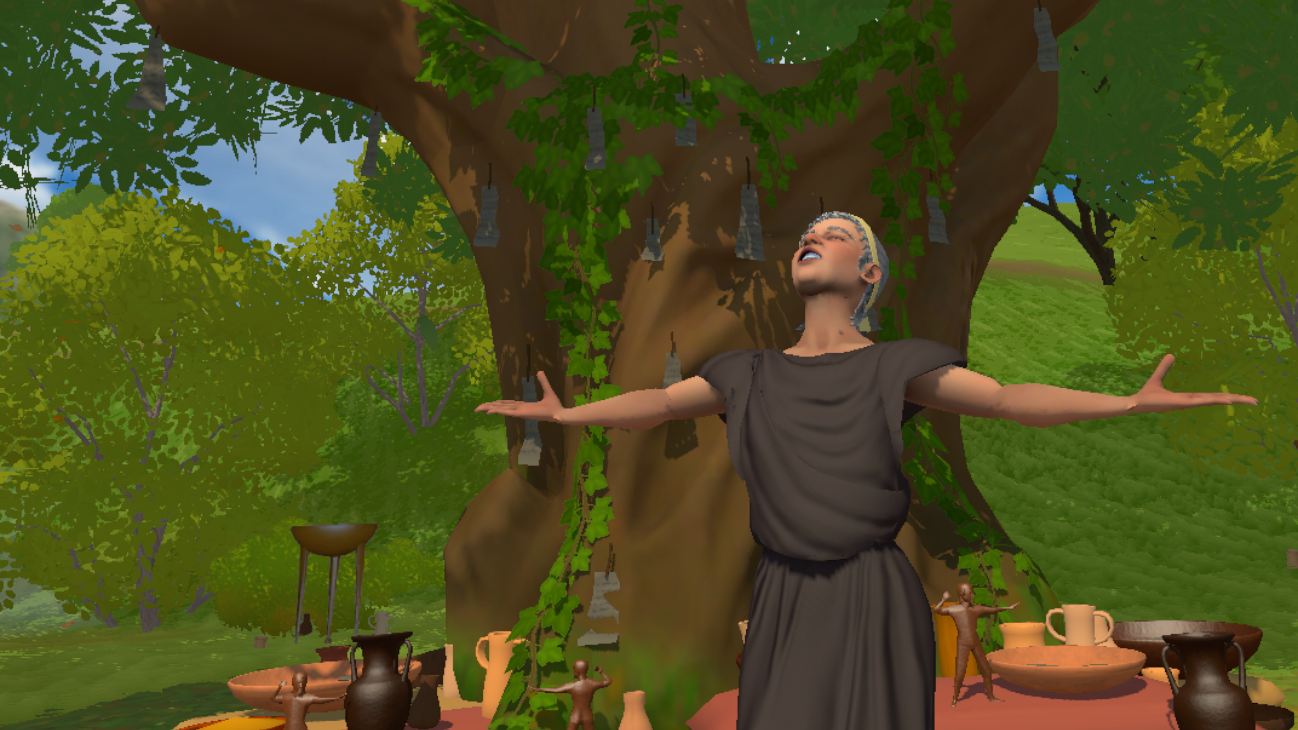 Virtual Reality Oracle Project, Esther Eidinow, Kirsten Cater, et al, with Friday Sunday Studios, funded by AHRC, University of Bristol.
Virtual Reality Oracle Project, Esther Eidinow, Kirsten Cater, et al, with Friday Sunday Studios, funded by AHRC, University of Bristol.



